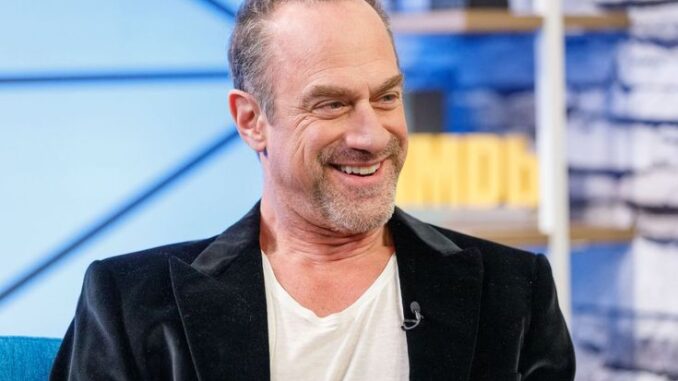
The Unscripted “Love You”: A Tremor in the SVU Universe
In the vast, often predictable landscape of network television, certain moments transcend the mere mechanics of script and performance, carving out a space in the collective consciousness of an audience. Christopher Meloni’s admission that his “Love You” to Mariska Hargitay’s Olivia Benson in Law & Order: SVU‘s Season 27 premiere was an unscripted ad-lib is one such moment – a quiet, seismic shift that rippled through decades of shared television history, validating fan intuition and showcasing the profound alchemy between actors and their characters. This wasn’t just a line; it was a distillation of history, a whisper of authenticity, and a testament to the enduring power of an unspoken narrative.
For nearly a quarter of a century, the partnership between Detectives Elliot Stabler and Olivia Benson has been the bedrock of Special Victims Unit. Their relationship, forged in the crucible of unimaginable trauma and unwavering justice, transcended typical television pairings. It wasn’t about conventional romance, but a soul-deep connection, a professional bond that morphed into an unspoken language of understanding, protection, and fierce loyalty. Even during Stabler’s decade-long absence, the void he left was palpable, a testament to the depth of their tether. When he returned to the fold, first in Organized Crime and then in crossover events, the air between them crackled with the weight of unspoken words, unresolved feelings, and the agonizing slowness of their emotional reunion. Every lingering glance, every hesitant touch, every shared moment of silence was scrutinized by an audience desperate for the culmination of years of exquisite tension.
Into this carefully constructed narrative, Meloni’s ad-libbed “Love You” landed not as a plot device, but as an act of raw, unvarnished truth. It wasn’t written; it emerged. This is where the illustrative power of the moment lies. An actor, so deeply immersed in the skin of his character, found a line that the script had perhaps withheld, but that the character’s heart desperately needed to voice. It speaks to the unique craft of acting, where the performer becomes so intimately acquainted with their role that they can anticipate, even dictate, its emotional trajectory in real-time. Meloni, as Stabler, wasn’t merely reciting dialogue; he was embodying a man whose love for Benson had always been the unspoken undercurrent of his existence, finally bubbling to the surface in a moment of vulnerability and quiet affirmation.
The impact of this single, unscripted phrase was immediate and visceral. For the legions of fans who had invested decades in the Benson-Stabler dynamic, it was more than just a declaration; it was a catharsis. It validated years of reading between the lines, of hoping for the recognition of a love that defied easy categorization. It felt earned, not imposed by a writers’ room seeking a ratings boost, but organically birthed from the heart of the narrative. Meloni’s admission that the line “made the cut” isn’t just a casual anecdote; it’s an acknowledgement from the production team that even in a tightly controlled environment, genuine human emotion, delivered by an actor inhabiting his character, holds an undeniable power that supersedes the written word. It illustrated the collaborative trust between performer and production, where the authenticity of a moment is prioritized over rigid adherence to the script.
Ultimately, Meloni’s ad-libbed “Love You” is more than a trivial behind-the-scenes detail. It’s a powerful illustration of the living, breathing nature of long-running television and the deep, often symbiotic, relationship between character, actor, and audience. It demonstrated that true emotional resonance isn’t always manufactured; sometimes, it spontaneously combusts from the depth of a character’s journey and an actor’s profound understanding. In that simple, unscripted utterance, Christopher Meloni didn’t just deliver a line; he gave voice to two decades of unspoken longing, echoing the hearts of millions and reminding us that sometimes, the most profound truths are those that escape the page and find their way straight from the soul.
